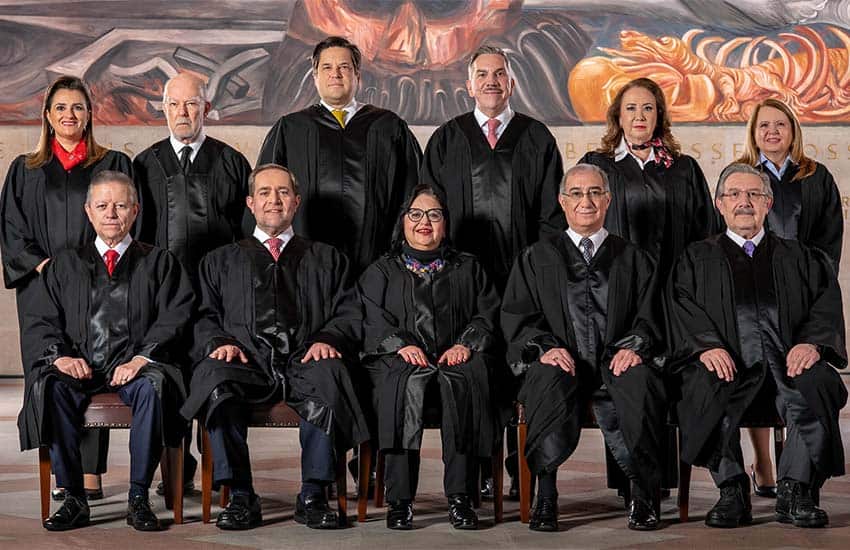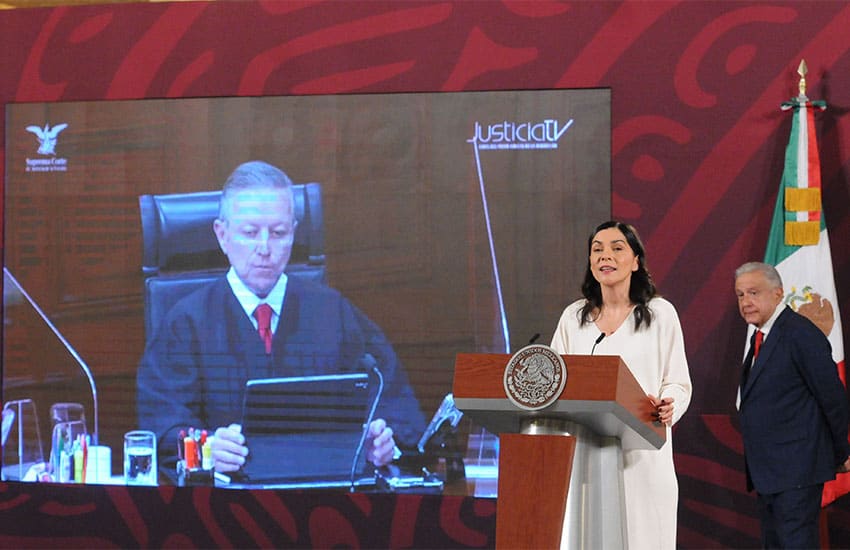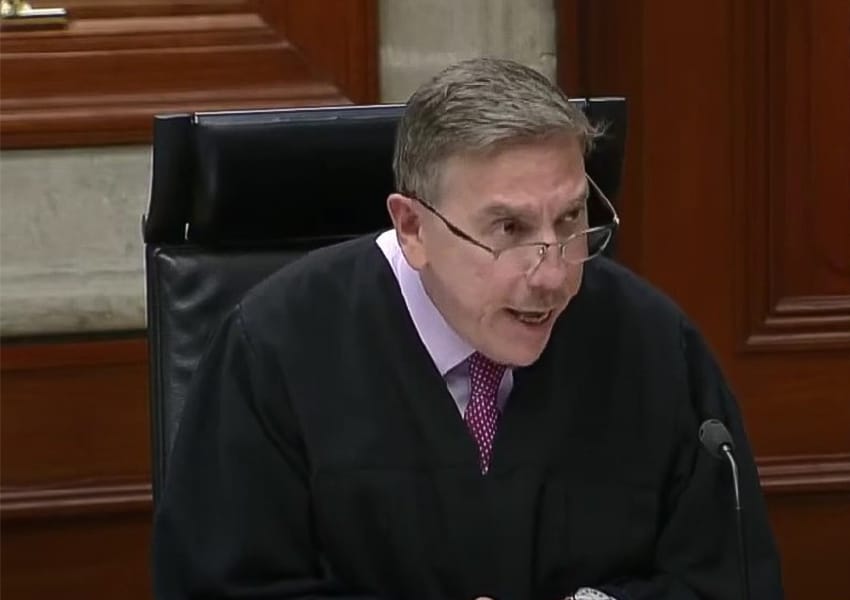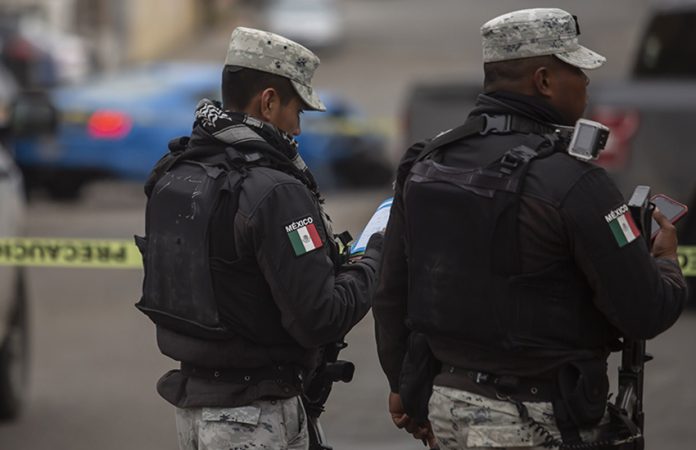The Supreme Court (SCJN) ruled on Tuesday that the transfer of control over the National Guard from the civilian Security Ministry (SSPC) to the Defense Ministry (Sedena) was unconstitutional, a decision that President López Obrador asserted was based on political bias rather than legal criteria.
The federal Congress last September approved a bill backed by the president that modified four secondary laws and thus paved the way for the security force to be placed under the control of the armed forces.

López Obrador argued that the National Guard needed to be under the control of the military to prevent corruption and guarantee the force’s professionalism.
At the time, opposition senators challenged the legislation passed by the ruling Morena party and its allies, arguing that it was unconstitutional. The National Guard was established in 2019 under a constitutionally-enshrined civilian command.
Eight of 11 Supreme Court justices agreed Tuesday that the reform bill was unconstitutional.
The court noted in a statement that it had invalidated the transfer to Sedena of “organic, administrative, budgetary and managerial” control over the National Guard as the constitution “expressly establishes” that the force “will be a civilian entity” and that its “actions, plans and programs” are the responsibility of the civilian Security Ministry.

The Supreme Court also invalidated the power of the federal defense minister to nominate the chief of the National Guard and the reform’s rule that the Guard must be headed by a high-ranking military official.
In addition, the court ruled that National Guard personnel who were previously military police cannot continue to be considered active members of the military as that situation “distorted the civilian character” of the Guard and violated the constitution.
Supreme Court Justice Javier Laynez, one of the eight who voted to invalidate the transfer of control, said that giving operational and administrative responsibility for the National Guard to Sedena amounted to constitutional “fraud.”
The court’s ruling deals a significant blow to López Obrador, who has relied heavily on the military for public security and a range of other nontraditional tasks since he took office in late 2018.
Without military control, the president has argued, the National Guard is at risk of succumbing to corruption, as he claims occurred with the now-defunct Federal Police.
López Obrador said last week that declaring the transfer of control over the National Guard to Sedena as unconstitutional would be a “grave” and “enormous” mistake. He urged the SCJN justices to take into account that the Federal Police had been “completely spoiled” and “corrupted” under civilian leadership, including that of former security minister Genaro García Luna, who was convicted in the United States on drug trafficking charges earlier this year.

U.S. prosecutors argued that García Luna took millions in bribes from and colluded with the Sinaloa Cartel to protect its drug trafficking activities in Mexico and the United States.
At his Wednesday morning news conference, the president asserted that the eight justices who invalidated the transfer of control “acted in a partisan way,” employing political rather than legal criteria and “defending the old practices of the authoritarian and corrupt regime.”
The Supreme Court “responded to the interests” of the elite and didn’t listen to “the voice of the people,” López Obrador said.
Opposition parties, government critics and some human rights organizations pointed to the transfer of control over the National Guard to the army as another example of the militarization of Mexico that they say has occurred during the current government.
President of the National Action Party, Marko Cortés, said on Twitter that the Supreme Court’s decision on Tuesday was a “triumph in the face of Morena’s authoritarianism.”
Alejandro Moreno, a federal deputy and president of the Institutional Revolutionary Party, said that the ruling was a “good move to guarantee the civilian character of the National Guard.”

“That’s why we voted against [the transfer of control] in the Chamber of Deputies and the Senate. Militarization is not the solution to the nation’s problems. Building a safer and more peaceful Mexico is possible through civilian institutions,” he wrote on Twitter.
López Obrador, who pledged to withdraw the military from the nation’s streets before he took office, has denied the claim he is militarizing the country, despite putting the National Guard under Sedena’s control and giving the armed forces responsibility for a wide range of tasks including public security, infrastructure construction and the management of customs and ports.
Almost 130,000 National Guard troops and tens of thousands of soldiers and marines are deployed across Mexico to carry out public security tasks, but violent crime, including homicides, remains a major problem in some parts of the country.
The government is also attempting to address the root causes of crime through the distribution of welfare and provision of social programs such as a youth apprenticeship scheme and a tree-planting employment program.
The National Guard has been criticized for lacking the capacity to investigate crimes, and the conduct of some of its members has been the subject of criminal investigations. Guardsmen are accused of killing two people including a pregnant teenager in an allegedly unprovoked attack in Nuevo Laredo, Tamaulipas, last Sunday.
With reports from El Financiero, El País and Infobae
